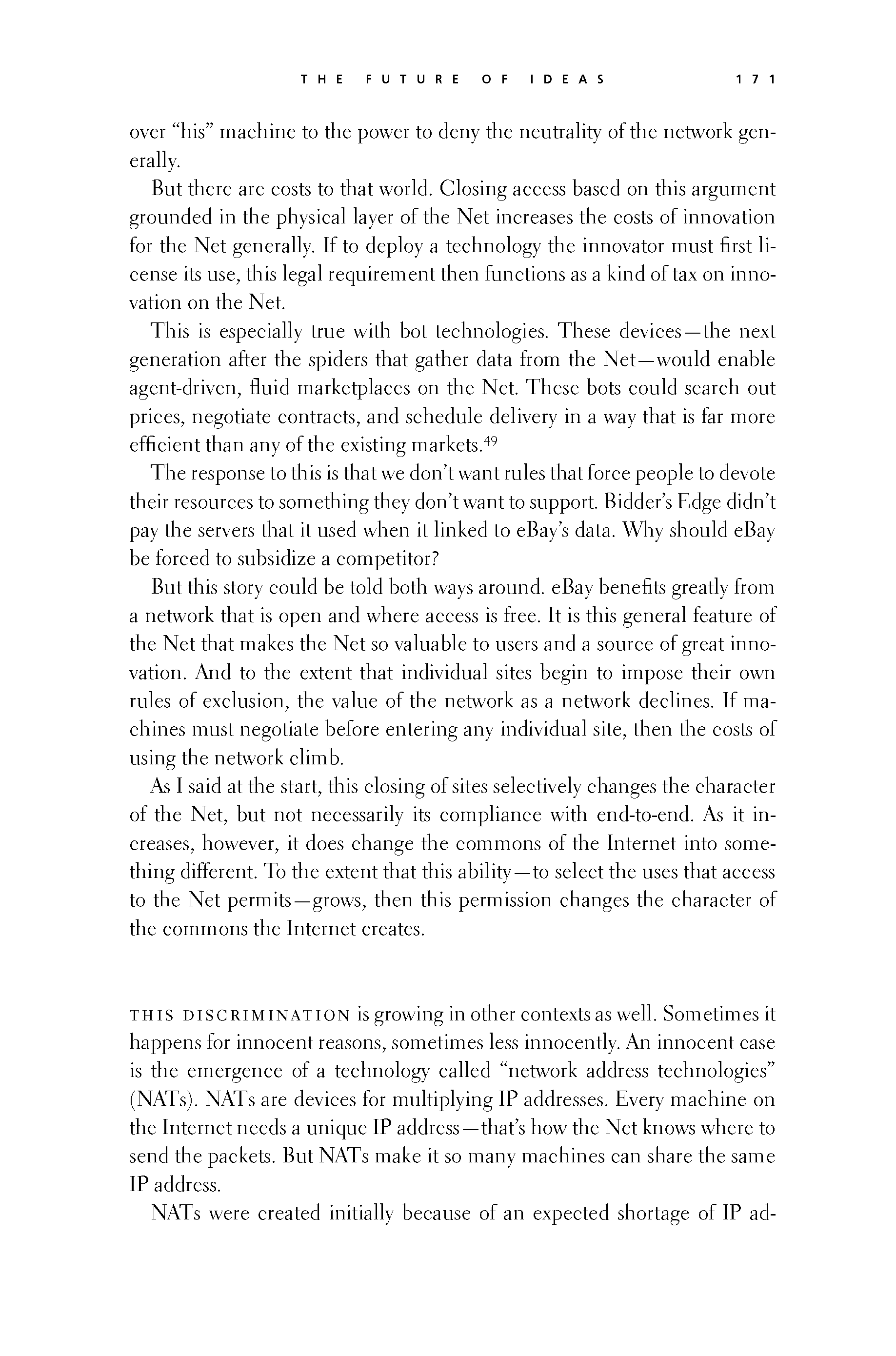 p170 _
-chap- _
toc-1 _
p171w _
toc-2 _
+chap+ _
p172
p170 _
-chap- _
toc-1 _
p171w _
toc-2 _
+chap+ _
p172
over "his" machine to the power to deny the neutrality of the network gen-
erally.
But there are costs to that world. Closing access based on this argument
grounded in the physical layer of the Net increases the costs of innovation
for the Net generally. If to deploy a technology the innovator must first li-
cense its use, this legal requirement then functions as a kind of tax on inno-
vation on the Net.
This is especially true with bot technologies. These devices -- the next
generation after the spiders that gather data from the Net -- would enable
agent-driven, fluid marketplaces on the Net. These bots could search out
prices, negotiate contracts, and schedule delivery in a way that is far more
efficient than any of the existing markets.[10-49]
The response to this is that we don't want rules that force people to devote
their resources to something they don't want to support. Bidder's Edge didn't
pay the servers that it used when it linked to eBay's data. Why should eBay
be forced to subsidize a competitor?
But this story could be told both ways around. eBay benefits greatly from
a network that is open and where access is free. It is this general feature of
the Net that makes the Net so valuable to users and a source of great inno-
vation. And to the extent that individual sites begin to impose their own
rules of exclusion, the value of the network as a network declines. If ma-
chines must negotiate before entering any individual site, then the costs of
using the network climb.
As I said at the start, this closing of sites selectively changes the character
of the Net, but not necessarily its compliance with end-to-end. As it in-
creases, however, it does change the commons of the Internet into some-
thing different. To the extent that this ability -- to select the uses that access
to the Net permits -- grows, then this permission changes the character of
the commons the Internet creates.
///\\\
This discrimination is growing in other contexts as well. Sometimes it
happens for innocent reasons, sometimes less innocently. An innocent case
is the emergence of a technology called "network address technologies"
(NATs). NATs are devices for multiplying IP addresses. Every machine on
the Internet needs a unique IP address -- that's how the Net knows where to
send the packets. But NATs make it so many machines can share the same
IP address.
NATs were created initially because of an expected shortage of IP ad-
[[171]]
p170 _
-chap- _
toc-1 _
p171w _
toc-2 _
+chap+ _
p172